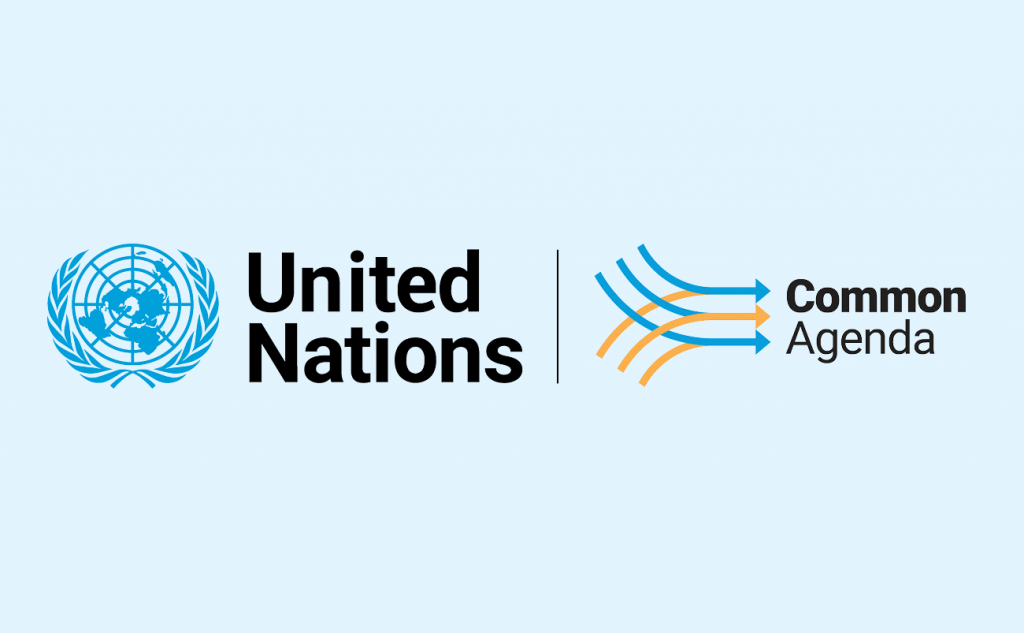across the un system
Our Common Agenda

“Our Common Agenda” report looks ahead to the next 25 years and represents the Secretary-General’s vision on the future of global cooperation and reinvigorating inclusive, networked, and effective multilateralism. The Secretary-General presented his report to the General Assembly in September 2021 before the end of the 75th session of the General Assembly.
Read the report of the Secretary-General on Our Common Agenda
Secretary-General’s statement to the General Assembly (10 September 2021)
Secretary-General’s press conference (10 September 2021)
General Assembly resolution (15 November 2021)
Our Work Across the United Nations System:
As outlined in the Secretary General’s ‘Our Common Agenda’ Report, a UN Youth Office is to be established.
Between July and September 2022, Member States are negotiating the UN General Assembly resolution to establish the UN Youth Office.
As youth, we have been directly engaging with Member States, sending them our language suggestions to try and influence the negotiations.
Read the Youth Mark-Up to the first revised draft (Rev1) text of the UN Youth Office General Assembly resolution below.
On 6 June 2022 the President of the General Assembly (PGA) H.E. Ambassador Abdulla Shahid, appointed H.E. Ambassador Yoka Brandt, Permanent Representative of the Kingdom of the Netherlands and H.E. Ambassador Satyendra Prasad, Permanent Representative of Fiji, as co-facilitators of the Declaration on [for] Future Generations.
To prepare for Summit of the Future, proposed in the Secretary General’s report “Our Common Agenda” to be held next year, the co-facilitators have been requested by the PGA to start consultations on the Declaration on Future Generations. This intergovernmental consultative process will endeavor to provide an “Elements Paper”, reflecting elements that capture what Member States and stakeholders would like to see reflected in the Declaration.
As youth, we have been directly engaging with Member States, by submitting our contributions throughout the consultation period (August 2022).
Below, you can read our submissions on including contemporary forms of slavery in the Elements’ Paper.
The Transforming Education Summit is being convened by the United Nations in response to a global crisis in education – one of equity and inclusion, quality and relevance.
Often slow and unseen, this crisis is having a devastating impact on the futures of children and youth worldwide.
The Summit provides a unique opportunity to elevate education to the top of the global political agenda and to mobilize action, ambition, solidarity and solutions to recover pandemic-related learning losses and sow the seeds to transform education in a rapidly changing world.
We carried out grassroots consultations and conversations, collating inputs and suggestions on how the intersections between quality education and countering modern slavery and trafficking in persons can be integrated across the Transforming Education Summit processes.
Read the recommendations for the Youth Declaration and Summit in full below.
In September 2023 the United Nations’ 193 member states are expected to convene a Summit of the Future during the General Assembly’s annual high-level week in New York City.
Between July and September 2022, Member States are negotiating the UN General Assembly resolution to decide the modalities for the Summit of the Future.
As youth, we have been directly engaging with Member States, sending them our language suggestions to try and influence the negotiation process.
Read the Youth Mark-Up to the zero draft text of the modalities resolution below.
In Our Common Agenda, the Secretary-General issued an ambitious call to improve international cooperation through effective multilateralism. A central objective of effective multilateralism is strengthening governance arrangements that can deliver global public goods, a critical issue of international concern.
He announced the formation of a High-Level Advisory Board (HLAB) that will be tasked with developing an independent report in support of this objective. The report will reflect substantive research into effective multilateralism and global public goods and will contain concrete recommendations for the Secretary-General and Member States ahead of the 2023 Summit of the Future.
HLAB is led by a former Head of State and a former Head of Government and composed of other leaders from civil society, the private sector, academia, and other relevant arenas.
As part of the HLAB’s consultation process, we contributed a submission on how multilateralism and governance across the UN system needs to be strengthen to counter contemporary forms of slavery and trafficking in persons, in all its forms, wherever it may occur.
Read the submission in full below.
